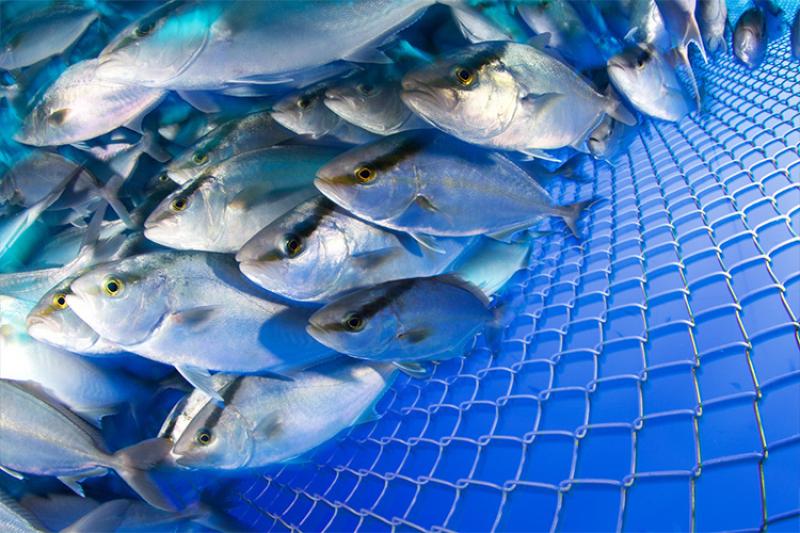In February 2020, Ms. Tori Spence-McConnell began working as a Fishery Policy Analyst in NOAA Fisheries’ Pacific Islands Regional Office. In this role, she serves as our aquaculture specialist. Tori brings years of experience working to define and promote sustainability in the global seafood industry. She has a formal background in fish physiology and aquaculture. She has worked with aquaculture stakeholders at the farm level and has researched sustainable aquaculture on a regional and global scale.
Nationwide, communities are increasing their efforts to eat locally and increase their food security. The Pacific Islands are no different. Tori is exploring the potential for aquaculture to enhance seafood availability in the region. She says she has been “impressed with the tenacity and ingenuity we’re seeing among seafood producers; their work is increasing our access to sustainable seafood.” She’s excited about the opportunities for well-management growth and innovation in the industry. She hopes that sustainable development of aquaculture will help support regional resilience and economic opportunities for communities in the Pacific Islands.
Prior to joining NOAA Fisheries, Tori worked as a Senior Aquaculture Scientist at the Monterey Bay Aquarium Seafood Watch program. Previously, she was a lead auditor and program manager for seafood eco-certifications. As an auditor, she focused on sustainability at the farm level. She performed and oversaw audits in a variety of seafood supply chains throughout the Americas, Southeast Asia, and Europe. While with Seafood Watch, she researched these same industries at a regional level and reviewed the governance factors that constrain or support sustainable aquaculture development. These experiences gave her an appreciation for the practical challenges facing seafood production operations, and a global perspective she hopes to apply to domestic policy.
In addition to working directly with producers, she has also worked with stakeholders to hone standards that are used to evaluate seafood sustainability. These efforts included:
- Aligning sustainability criteria and evaluation approaches among 14 international seafood ratings programs
- Coordinating expert working groups for standard review
- Managing the governing body for Seafood Watch Standards.
She has also been involved in several ongoing initiatives focused on improving data collection for aquaculture in Southeast Asia. These initiatives enable shrimp farmers to track data that would show conformity to sustainability criteria. They also provide a community of support for meeting any criteria that are lacking. This community extends into the supply chain, aiding in transparency and traceability for the consumer.
Aided by this broad background, Tori’s first priority in her new role is preparing a Programmatic Environmental Impact Statement (PEIS). It will analyze the potential environmental effects of a proposed Pacific islands aquaculture management program. This proposed program is of particular interest to the Western Pacific Fishery Management Council. The Council has recommended amending its five fishery ecosystem plans to include offshore aquaculture as a managed fishery. The PEIS will analyze the effects of permitting offshore aquaculture operations according to species raised, systems used, and areas that may be utilized for permitting. “The PEIS will lay the groundwork for a region-wide program to support environmentally sound and economically sustainable aquaculture in federal waters in the Pacific islands,” said Spence. “By working with the Council and stakeholders we hope to expand the region’s seafood portfolio.” The draft PEIS is expected to be available for public comment this fall.

